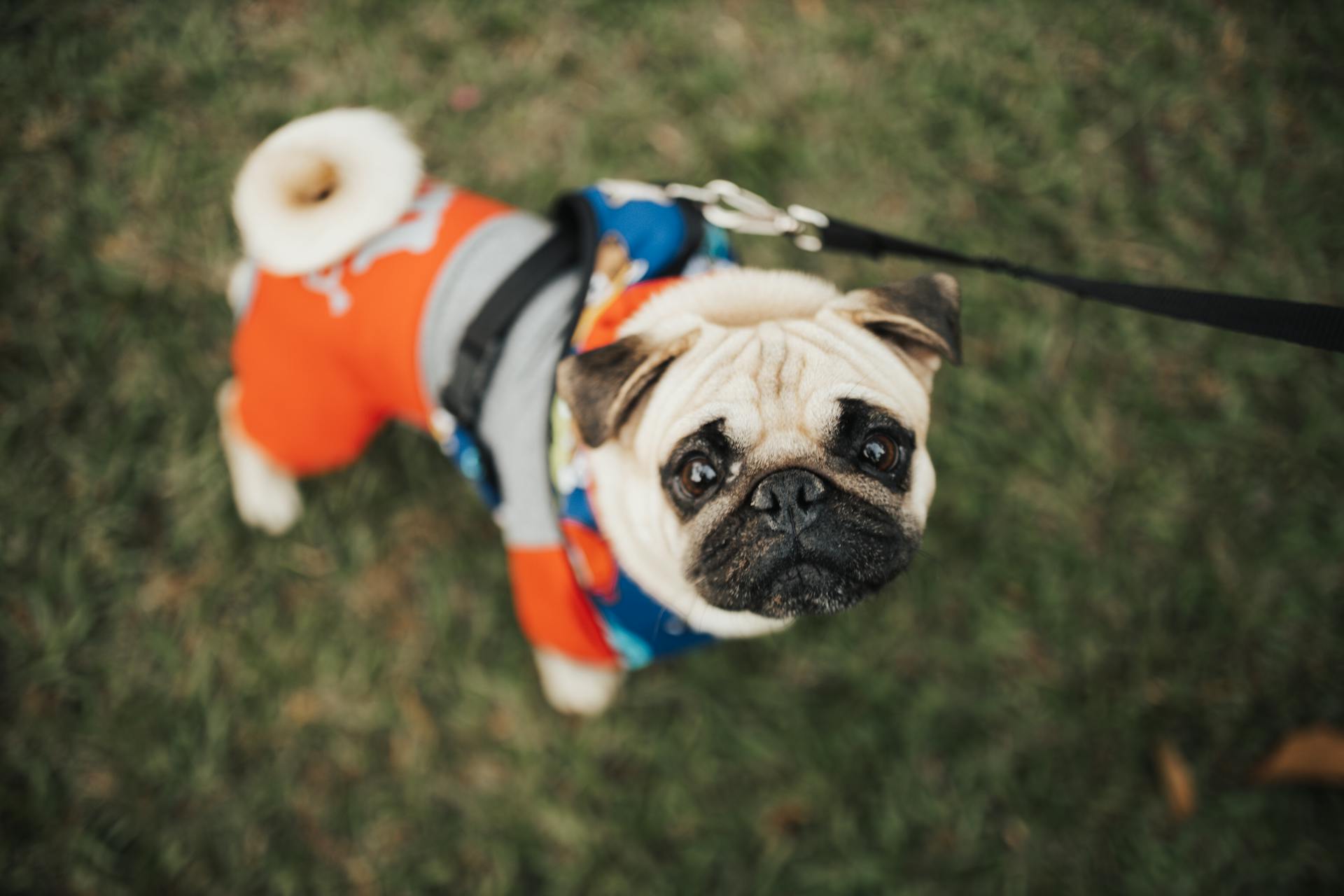
Yes, overfeeding a dog can cause diarrhea. When a dog eats more food than it needs, the excess food can't be digested properly and can cause loose, watery stools.
If your dog is eating too much, you may notice that they're always hungry or that they beg for food more often than usual. They may also start gaining weight.
Overfeeding can be harmful to your dog's health and may lead to obesity and other health problems. If your dog has diarrhea, you should talk to your veterinarian to find out if overfeeding is the cause and what you can do to help your dog feel better.
What are the signs of dehydration in a dog?
When it comes to dehydration in dogs, there are a few key signs to look out for. One of the most common signs is a decrease in energy levels and activity. A dog who is normally playful and full of energy may suddenly become lethargic and appear to have no interest in anything.
Other signs of dehydration include a loss of appetite, dry or sticky gums, dry nose, and sunken eyes. If your dog is showing any of these signs, it’s important to take them to the vet right away as dehydration can be very serious, especially in young puppies or elderly dogs.
How can I prevent my dog from becoming overweight?
When it comes to our furry friends, one of the most common problems is obesity. Just like with humans, being overweight can lead to a number of health problems in dogs including diabetes, joint problems, and even decreased life expectancy. So how can you help your best friend maintain a healthy weight?
First, it’s important to know if your dog is overweight. A good way to do this is to feel their ribs. You should be able to feel each individual rib without any excess fat covering them. If you can’t, your dog is likely overweight. You can also use a Body Condition Score chart which you can find online.
The next step is to figure out how much your dog should be eating each day. This will vary based on their weight, activity level, and age. A good rule of thumb is to feed them about 30 calories per pound of their ideal body weight. So, if your dog should weigh 20 pounds and is currently overweight, you would feed them about 600 calories per day.
When it comes to the type of food you feed your dog, it’s important to choose a high-quality, nutrient-rich food. avoid foods that are high in fillers and unhealthy fats. You should also avoid feeding your dog table scraps as these are often high in calories and low in nutrition.
In addition to changing their diet, increasing exercise is crucial for helping your dog lose weight. If your dog is not used to exercising, start slow with short walks and gradually increase the distance and duration as they build up their stamina. If your dog is already active, try adding in some additional playtime or walks.
Weight loss in dogs, as with humans, takes time and patience. However, by following these simple tips, you can help your furry friend live a long and healthy life.
If this caught your attention, see: Skin Problems
Frequently Asked Questions
What should I do if my dog has diarrhea after changing food?
If your dog has diarrhea after a change in diet, first make sure you are providing them with enough water. If this doesn’t seem to help, try switching to a slow introduction schedule of the new food and gradually increasing the ratio of new food over time. Finally, if all else fails, consult a vet.
Why does my dog have diarrhea?
Dogs can develop diarrhea from many different factors, but the most common ones include:1 Toxins. Dogs can get intestinal illnesses due to toxins they ingest, such as from eating rawhide or getting into chemicals in the environment. Diseases. diarrhea can be a sign of less-than-optimal health and could be caused by parasites, viruses, or other infectious organisms. Food allergies. Some dogs may have food allergies that cause them to has stomach pain, diarrhoea, and vomiting after eating certain items. if you suspect this is your dog’s case, visit with your veterinarian for testing. Dehydration. Lack of hydration can lead to crampsy bowel syndrome (CBP), which is often accompanied by diarrhoea and vomiting. Symptoms usually start between hours 2 and 6 after drinking water or consuming any fluids elsewhere in the body such as through milk or formula feeding schedules. Monitoring your dog’s
Is it bad for a puppy to have diarrhea for days?
A puppy who has diarrhea for days is in serious condition and should be seen by a vet as soon as possible. Continued diarrhea can lead to dehydration and parasite infections and even death.
Can changing dog food cause stomach problems?
Yes, switching dog food can cause stomach problems in most dogs and diarrhea in those that are more sensitive. Do it gradually so that your dog doesn’t have anymajor gastrointestinal issues as a result.
How often should you feed a dog with diarrhea?
Ideally, you should feed your dog on a consistent schedule, but if they are experiencing diarrhea, it can be helpful to feed them smaller amounts more often. Try feeding them every 3 to 4 hours to create a rhythm for their digestive system.
Sources
- https://www.petco.com/shop/en/petcostore
- https://petcube.com/blog/dog-not-eating/
- https://vcahospitals.com/know-your-pet/hip-dysplasia-in-dogs
- https://en.wikipedia.org/wiki/List_of_dog_diseases
- https://www.miamidade.gov/global/service.page
- https://www.petmd.com/reptile/slideshows/care/seven-things-not-do-your-turtle
- https://www.msdvetmanual.com/digestive-system/salmonellosis/salmonellosis-in-animals
- https://dogtime.com/dog-breeds/aussiedoodle
- https://www.healthline.com/nutrition/human-foods-for-dogs
- https://en.wikipedia.org/wiki/List_of_fictional_cats_in_animation
- https://www.thelabradorsite.com/how-to-feed-a-labrador/
- https://dogtime.com/dog-breeds/biewer-terrier
- https://www.petguide.com/breeds/dog/double-doodle/
- https://www.aspca.org/pet-care/general-pet-care/spayneuter-your-pet
- https://topdogtips.com/my-dog-has-bloody-diarrhea/
Featured Images: pexels.com


